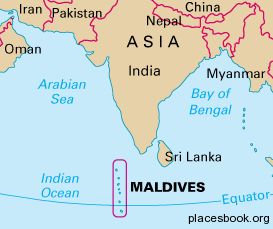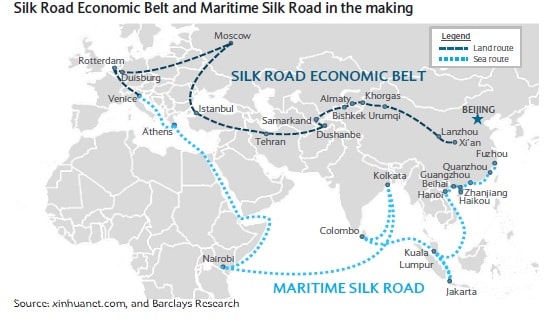IASbaba's Daily Current Affairs Analysis, IASbaba's Daily Current Affairs August 2015, UPSC
Archives
IASbaba’s Daily Current Affairs- 14th August, 2015
NATIONAL
Shed the taboo around organ donation
- Organ donation and transplantation provides a second chance at life for
 thousands of people each year.
thousands of people each year. - The growing disparity between the rich and poor, demand for human organs and availability of technology in the country makes the trading of organs a quick means to riches for some and a relief for others.
- Invariably Organ trade leads to exploitation of the poverty-stricken people by tempting them with financial gains to meet their immediate short-term financial needs.
- The sad reality is that India has one of the lowest organ donation rates among developed and developing nations.
What are the Reasons for the lowest organ Donation in India?
- Finding a donor is the main issue in the country.
- Lack of awareness and improper infrastructure facilities are the main reasons behind the existing scenario.
- Administrative hurdles and conservative mindset further affect organ transplantation scenario in India.
What are the Myths about organ Donation in India?
- There are a lot of myths associated with organ donation which needs to be addressed to solve this problem.
- Most Indians generally believe that it is against the nature and religion that body parts are mutilated.
- Some are suspicious that the hospital staff may not work hard to save their lives if they want organs.
- Others believe that there might be a temptation to declare them dead before they are actually dead.
What are the Administrative drawbacks?
- Lack of a centralized registry for organ donation acts as another major hurdle for the people to donate organs or get data about donors.
- Also, there is a problem of certifying brain deaths; if people are not aware of brain deaths; it becomes difficult to convince the relatives of the patients for organ donation.
- India currently follows a very loose version of the ‘opt-in’ framework. Under this framework, harvesting of organs is only done after the donor explicitly agrees to it.
- Countries such as the US, UK, Germany, and Netherlands have a ‘family consent’ system in place which helps raise the number of donors.
What is the Donor Card?
- Signing a donor card is the first step in making your wishes about donation known.
- A donor card is not a legal document but an expression of one’s willingness to donate.
- While signing a donor card demonstrates one’s desire to donate organ after death, letting the family or friends know about the decision is very important.
- That is because family members will be asked to give consent for the donation.
- The decision will be considered final when they give consent.
- Vital organs such as heart, liver, lungs, kidneys, pancreas and intestines, and tissues such as corneas, heart valves, skin, bones, ligaments, tendons, veins, etc. can be donated in case of brain death.
What is Green Corridor Concept?
- Several new initiatives have come up to facilitate smoother and better transplants, and hasten the process of organ retrieval.
- The Green Corridor concept is a great idea as it involves the unhindered transport of an organ to the hospital, through a series of alerts at traffic junctions, airports and so on.
- Experts propose a formalisation of the Green Corridor by creating a new code, akin to those used in natural disasters, to be used for any organ retrieval or transport, which will ensure that all stakeholders’ civic bodies, traffic police, ambulance operators and doctors align to ensure the timely movement of organs.
What are the Legal Provisions w.r.t Organ Donation?
- The Government passed the Transplantation of Human Organ Act (THO) in 1994 which made unrelated transplants illegal and deceased donation a legal option with the acceptance of brain death.
- Government of India enacted the ‘Transplantation of Human Organs (Amendment) Act in 2011 which made provisions for simplifying the procedure for human organ donation.
- The recently notified Transplantation of Human Organs and Tissues Rules(THOT), 2014 has many provisions to remove the impediments to organ donation while curbing misuse/misinterpretation of the rules.
IAS BABA’s View
- The availability and optimal utilisation of organs can be enhanced through a national declaration on cadaveric donation that puts forth an ‘opt-out’ framework in place.
- Such a framework, through the use of IT, will ensure that only those who opt out willingly will not be used as organ donors.
- This declaration will give India the unique position of having taken up a visionary public health initiative on such a large scale.
Connecting the Dots:
- What are the Reasons behind the imbalance between the number of organs donated and the number of people waiting for a transplant?
- “Making organs a commodity is fraught with erosion of social, moral, and ethical values and is not an alternative that can be acceptable to meet organ requirements in a civilized society”. Critically analyze.
China factor in India Maldives relation: an analysis
- Maldives is located south of India’s Lakshadweep Islands in the Indian Ocean.
 Eight degree channel separates Lakshadweep islands from Maldives.
Eight degree channel separates Lakshadweep islands from Maldives. - Over the years India and Maldives have developed close strategic, military, economic and cultural relations with each other.
- Both nations are founding members of the South Asian Association for Regional Cooperation (SAARC), the South Asian Economic Union and signatories to the South Asia Free Trade Agreement.
What is the issue now?
- On July 22, 2015 the People’s Majlis, the unicameral parliament of the Maldives, passed a bill amending the 2008 Constitution to allow foreign ownership of land.
- The bill amended Article 251, and added a new chapter to the Maldives Constitution.
What was article 251 all about?
- Article 251 of the Constitution, in its previous form, prohibited foreign ownership of land. It said that: (a) no foreign party, shall own or be given ownership of any part of the territory of the Maldives, (b) a foreign party shall not receive a lease of, or be given in any other way, any part of the territory of the Maldives for a period exceeding 99 years and,(c) no part of the territory of the Maldives shall be used for foreign military purposes without the approval of the majority of the total membership of the People’s Majlis.
What is the amendment?
- It allows foreigners to own freehold land, as long as they meet certain criteria, including that the project built on the land must be approved by Parliament, there must be a minimum investment of US $ 1 billion “in the territory of the Maldives”, and upon the project’s reaching completion, “at least 70 per cent of the land must have been reclaimed from the ocean and be visible at medium tide”.
- It also declares that allowing a foreign party to own land under these specific circumstances “does not undermine the Maldivian state’s sovereignty over its territory and does not amount to loss of territory”.

Should India be worried regarding the amendment?
- Indian government officials have voiced concern that the law will be used by China to extend its military influence and that the Indian Ocean would not remain as a demilitarized zone.
- Also with the amendment, Chinese investments will easily flow into Maldives and China is known for reclamation of land from the sea, with its immense dredging capabilities on display in the South China Sea.
- This move by Maldives will further strengthen the maritime silk route project of china and also provides greater access to Indian ocean.
- With china taking a keen interest in expanding its strategic footprint in South Asia and the Indian Ocean, India has good reasons to worry.
Connecting the dots:
- Comment on geo-strategic importance of Maldives to India, in maintaining supremacy over Indian ocean.
- India supports Asian Infrastructure and Investment Bank initiative of China, should it also be a part of Maritime silk route initiative. Critically analyse.















